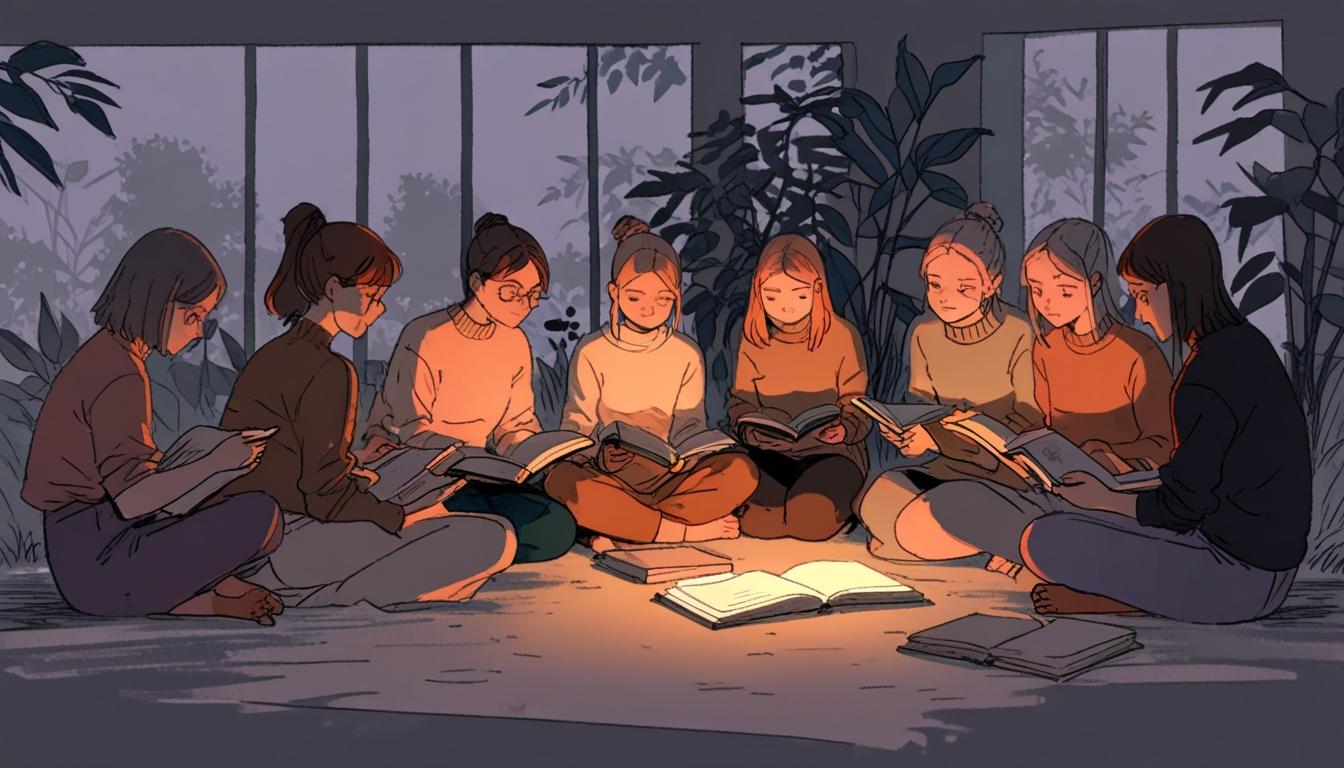As modern life becomes increasingly cacophonous, a growing movement is emerging that seeks solace in silence. Among the most popular expressions of this trend are silent book clubs and cafes, which cater to a pressing demand for tranquil environments. Silent book clubs, initially launched in San Francisco in 2012, have expanded exponentially, reportedly boasting 1,600 chapters across 54 countries, including roughly 100 in the UK. Recent data from Eventbrite highlights that there has been a staggering 460% increase in the organisation of such silent book events at the start of 2025 compared to the same time in 2024.
The allure of silent cafes is equally compelling. These venues provide refuge from the incessant chatter that often fills the airwaves of our lives, steering clear of conversations about everything from pitch decks to personal grievances. Locations like Shojo Cafe in Osaka epitomise this concept, maintaining an environment strictly free from spoken words and music. Here, patrons engage in conversation through written notes or sign language, resulting in a unique communal experience that upholds the values of peace and respect for individual silence.
This rise in demand for silent experiences aligns with a broader reassessment of noise in our lives. Much like the increasing appreciation for dark skies—a venture towards luxury that allows us to reconnect with nature—the desire for silence is a response to an overstimulated world riddled with persistent background noise from leaf blowers to incessant phone calls. Our societies are now recognising the worth of these quiet experiences, sparking a paradigm shift where silence is not merely the absence of sound but a rich, textured phenomenon that can evoke feelings ranging from peace to profound intimacy.
Many find themselves drawn to the allure of such experiences. There exists a palpable distinction between isolation and the shared experience of silence, where a collective hush can feel both intimate and moving. In my personal journey, having spent six years at a Quaker school with a daily commitment to silent worship, I've come to appreciate how silence can hold its own kind of energy. It's an atmosphere conducive to introspection, enabling a retreat from the incessant distractions of modern life.
The concept of silent retreats is actively gaining traction as a top travel trend, with offerings ranging from week-long wilderness retreats to specialized "quiet parks." These unique spaces, certified by organisations like Quiet Parks International, allow individuals to immerse themselves in nature's calming embrace while enjoying the benefits of unbroken silence. Such environments are becoming sought-after destinations for those looking to rejuvenate amidst the chaos of everyday life.
Overall, the appreciation for silence is not simply a personal preference but an increasingly recognised movement that integrates wellness with communal experience. Whether through silent book clubs, tranquil cafes, or wilderness retreats, there’s a growing understanding that these environments foster not just a retreat from the noise but also an opportunity to form bonds through collective experience, sharing the understated yet profound power of quietude.
Reference Map
- Paragraph 1: (1), (2), (4)
- Paragraph 2: (1), (3)
- Paragraph 3: (1), (4), (6)
- Paragraph 4: (1), (7)
- Paragraph 5: (1), (5)
Source: Noah Wire Services
